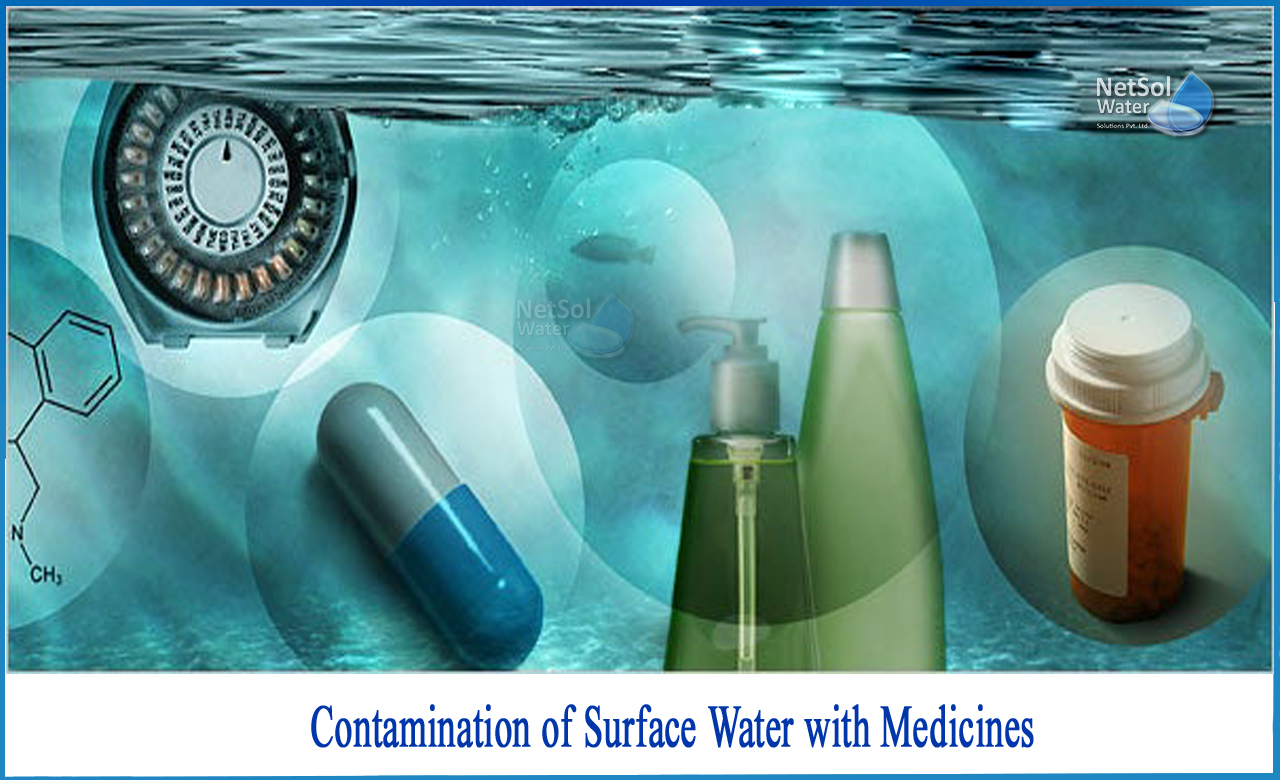Overview
Pharmaceuticals and personal care products (PPCPs) in the aquatic environment may constitute a hazard to the ecosystem and human health, and as a result, PPCPs have sparked widespread concern around the world.
Contamination with PPCPs
The contamination of PPCPs in groundwater, which is the primary source of drinking water in many nations and areas, has received a lot of attention in the recent decade. The occurrence of commonly found PPCPs in groundwater, such as antibiotics, anti-inflammatories, lipid-regulators, carbamazepine, caffeine, and N, N-diethyl-m-toluamide, has been examined with a focus on advancements made in the last three years. Furthermore, the primary mechanisms in the subsurface transport and destiny of PPCPs, adsorption, migration, and degradation, are also examined.
After use, pharmaceuticals for humans and animals, as well as their metabolites (degradation products), end up in the aquatic environment. Low amounts of medicines have been detected in municipal waste water, surface water, groundwater, and even in drinking water. The effects, and thus the risk, of long-term exposure to low quantities of medications on aquatic creatures are poorly understood. Hence need of devoting more time to mapping the presence has arrived and effects of pharmacological residues on aquatic organisms.
What are the effects of Contamination of Surface Water with PPCPs?
Chemicals present in our rivers come from a variety of places. Endocrine disrupting chemicals (EDCs) cause hormones in the body to malfunction. Pharmaceuticals, industrial chemicals, insecticides, and plastics contain them, and they can enter natural rivers through factory effluent, land run-off, or excretion if wastewater is not properly handled.
Worryingly, over 1,000 compounds have been identified as having the potential to disrupt the endocrine system, with many of these chemicals being found in everyday consumer products.
The emergence of antimicrobial resistance is another serious issue about drugs in the environment (AMR). The threat of AMR to human health has never been greater, and it is only becoming worse. Globally, 490,000 persons developed multi-drug resistant tuberculosis in 2016, according to the World Health Organization (WHO), and drug resistance is beginning to affect the fight against HIV and malaria as well.
It is well known that the use and abuse of medications, particularly antimicrobials, has increased globally in both human and cattle populations. Drug-resistant bacteria have spread to drinking water, food sources, and the wider ecosystem as a result of insufficient treatment and separation of wastewater streams, posing a direct threat to human health and the survival of other species.
Given the current challenges, contaminants must be eliminated from water before it is abstracted for human or animal use, as well as before industrial effluent is discharged into the sewer or environment.
Some Ways to Reduce Pollution
- Properly dispose of toxic chemicals: Many chemicals found in the home can be recycled. Your neighborhood may offer a recycling facility where you may recycle old paint, used motor oil, and other chemicals. In some places, community collection facilities and drop-off sites are also available. Your city may even arrange a hazardous waste collection day where you may drop off those hazardous old chemicals for safe disposal.
- Do Not Pour Fat and Grease down the Drain: Grease, fat, and wasted cooking oil should not be poured down the drain; instead, they should be thrown away or retained in a "fat jar" to be disposed of with other solid waste. It's possible that your pipes will clog, causing sewer lines to clog and back up into yards and basements. Local bodies of water are also contaminated by the pollution.
- Use Phosphate-Free Detergent and Dish Cleaner: By using just enough of these cleaners to get the job done, you can reduce water pollution even more. Phosphates aren't the only chemicals in cleansers that are dangerous. Phosphates cause algal blooms and reduce oxygen levels in the water, killing fish and other aquatic species.
- Report Water Polluters: Many incidences of unlawful garbage disposal and other forms of water pollution go unnoticed, and they are frequently not cleaned up. People who pour oil down storm drains, throw trash bags into streams, and so on should be reported.
For water and waste water treatment plants, contact Netsol Water.
Netsol Water is Greater Noida-based leading water & wastewater treatment plant manufacturer. We are industry's most demanding company based on client review and work quality. We are known as best commercial RO plant manufacturers, industrial RO plant manufacturer, sewage treatment plant manufacturer, Water Softener Plant Manufacturers and effluent treatment plant manufacturers. Apart from this 24x7 customer support is our USP. Call on +91-9650608473, or write us at enquiry@netsolwater.com for any support, inquiry or product-purchase related query.



